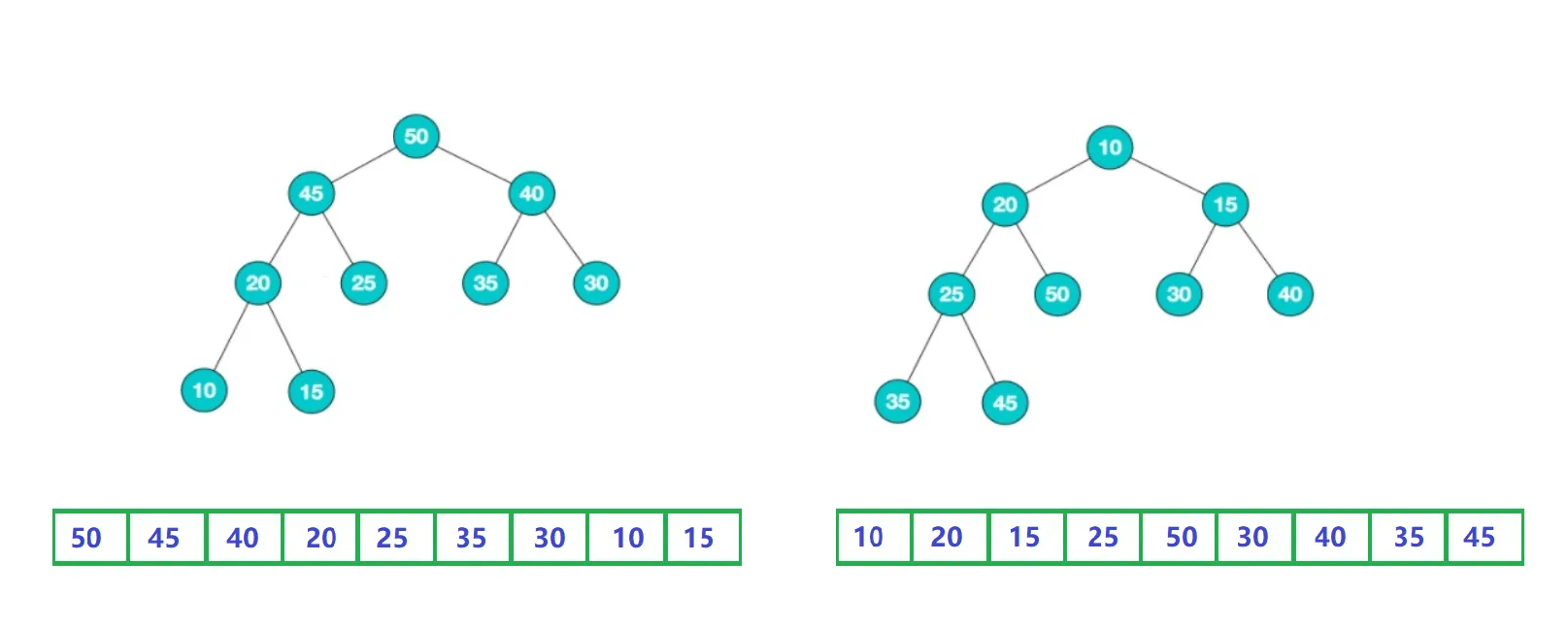priority_queue概述
priority_queue 即优先级队列,是一个具有权值观念的容器。priority_queue 完全以底部容器为根据,并额外加上了堆的处理规则,以保证 priority_queue 的堆序性质。与 stack 和 queue 一样,priority_queue是一种容器适配器。
本文以C++泛型技法对 priority_queue 进行实现,关于优先队列的结构和性质,以及优先队列各个操作的时间复杂度计算,请参考数据结构_优先队列。

仿函数(函数对象)
STL中的算法往往会提供一版最泛化的运算流程,允许用户以 template 参数指定所要采行的策略,不同策略的采用会使算法具有不同的行为,但在此过程中算法的本质不变。为了达到上述目的,仿函数(functors)应运而生。仿函数是一个行为类似函数的类对象,在使用方面,为了使其具有函数的特质,需要在类中定义函数调用运算子 operator(),拥有了 operator() 后,就可以以调用函数的方法对仿函数进行调用。
template<typename T>
class greater
{
public:
bool operator()(const T& x, const T& y)
{
return x > y;
}
};
void test()
{
greater isGreater;
isGreater(10, 20); //以函数调用的方式调用仿函数
greater()(10, 20); //较常用的方式是使用匿名对象调用operator()
}与函数指针相比,仿函数更加满足 STL 对抽象性的要求,并且可以灵活地与其他组件搭配,产生更灵活的变化。STL 提供了数种仿函数,包括算数类仿函数、关系运算类仿函数和逻辑运算仿函数等,选择合适的仿函数作为算法的参数,可以灵活满足自己的需求。在下述 priority_queue 的定义中,仿函数的选择决定了所实例化的优先队列的性质。
priority_queue完整定义
priority_queue 的内存管理和元素操作完全复用底层容器 _con 的接口,用户可以指定_con的类型,默认为vector。
为了方便用户指定所定义优先队列的类型,提供一个模板参数 compare,这个模板参数接收一个仿函数,该仿函数指定了元素之间的比较方式,默认为less()。除此之外,向上调整算法和向下调整算法及其时间复杂度计算都已在数据结构_优先队列进行了详细的说明和计算。SGI STL中默认priority_queue默认为大堆。
priority_queue的完整定义如下:
//定义两个仿函数
template<typename T>
class less
{
public:
bool operator()(const T& x, const T& y)
{
return x < y;
}
};
template<typename T>
class greater
{
public:
bool operator()(const T& x, const T& y)
{
return x > y;
}
};
//三个模板参数:存储数据类型、底层容器、元素比较方式(仿函数)
template<typename T, typename Container = std::vector<T>, typename compare = less<T>>
class priority_queue
{
private:
//向下调整
void AdjustDown(int parent)
{
int child = parent * 2 + 1;
int n = _con.size();
while (child < n)
{
if (child + 1 < n && compare()(_con[child], _con[child + 1])) {
++child;
}
if (compare()(_con[parent], _con[child]))
{
std::swap(_con[parent], _con[child]);
parent = child;
child = parent * 2 + 1;
}
else {
break;
}
}
}
//向上调整
void AdjustUp(int node)
{
int child = node;
int parent = (child - 1) / 2;
while (child > 0)
{
if (compare()(_con[parent], _con[child]))
{
std::swap(_con[child], _con[parent]);
child = parent;
parent = (child - 1) / 2;
}
else {
break;
}
}
}
public:
//迭代器区间构造
template<typename InputIterator>
priority_queue(InputIterator first, InputIterator end)
{
while (first != end)
{
_con.push_back(*first);
++first;
}
for (int i = (_con.size() - 1 - 1) / 2; i >= 0; --i) {
AdjustDown(i);
}
}
void push(const T& val)
{
_con.push_back(val);
AdjustUp(_con.size() - 1);
}
void pop()
{
std::swap(_con[0], _con[_con.size() - 1]);
_con.pop_back();
AdjustDown(0);
}
T& top()
{
return _con[0];
}
size_t size()
{
return _con.size();
}
bool empty()
{
return _con.empty();
}
private:
Container _con;
};
